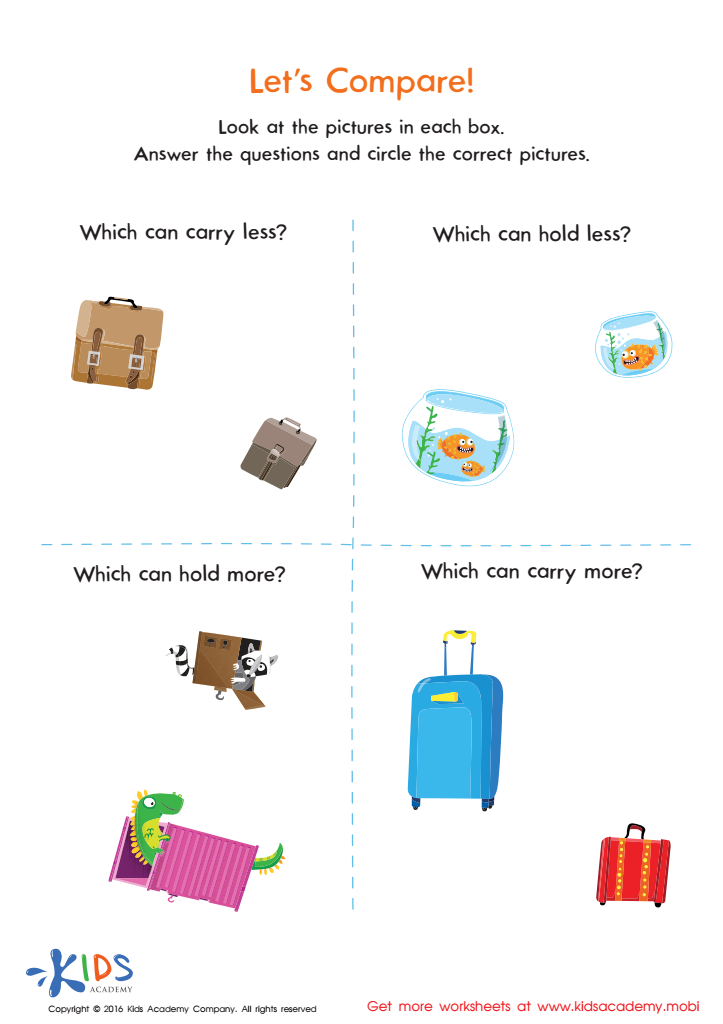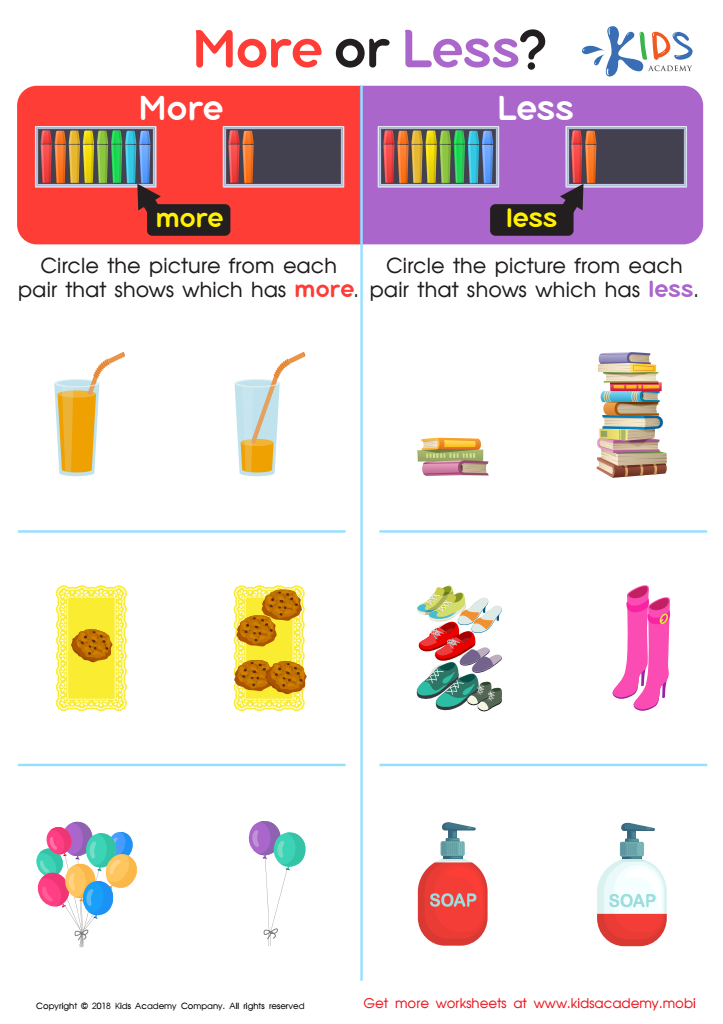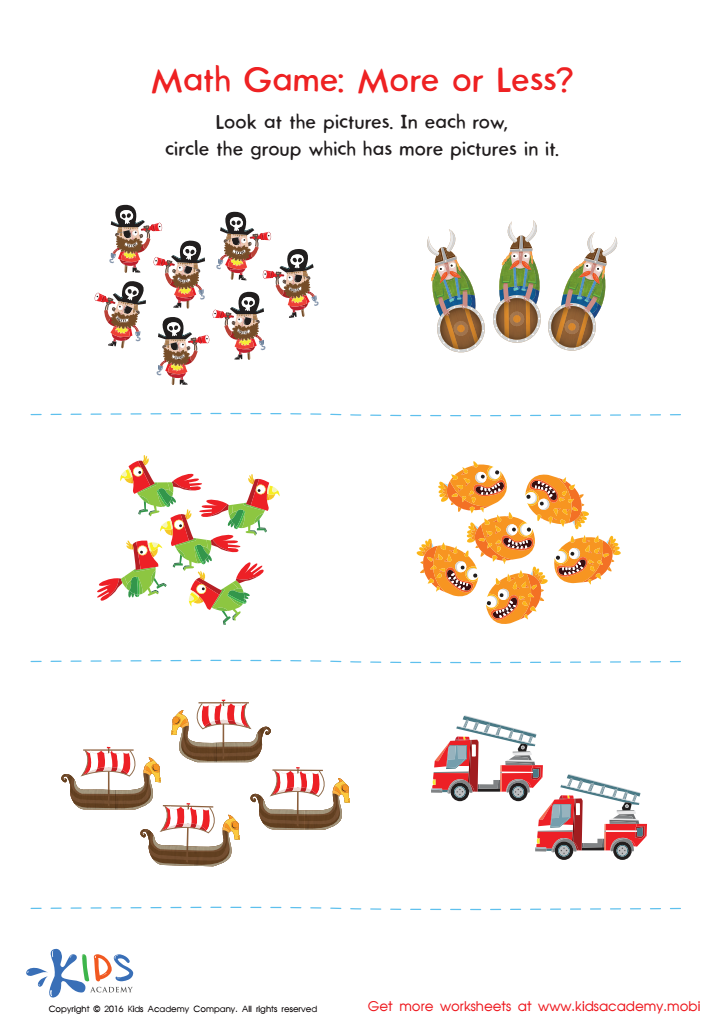Number comparison skills Math Worksheets for Ages 3-9
3 filtered results
-
From - To
Unlock your child's mathematical potential with our engaging Number Comparison Skills Math Worksheets designed for ages 3-9. These innovative worksheets provide a fun and interactive way for young learners to grasp essential math concepts, including greater than, less than, and equal to comparisons. Tailored to develop critical thinking and analytical skills, each worksheet features vibrant illustrations and age-appropriate challenges that cater to kids at various learning stages. Perfect for classroom use or at-home practice, our resources ensure that children build a strong mathematical foundation while enjoying the learning process. Explore our collection and watch your child's confidence in numbers soar!


Let's Compare Worksheet: Big or Small


More or Less? Worksheet


More or Less Worksheet
Number comparison skills are foundational mathematical abilities that significantly impact a child's academic success. By ages 3-9, children are developing critical cognitive skills, and understanding how to compare numbers is essential for their overall mathematical literacy. These skills lay the groundwork for addition, subtraction, and more complex math concepts down the road.
When children master number comparison, they learn to recognize quantities and order them correctly, which enhances their problem-solving abilities. This understanding aids them not only in mathematics but also in areas such as logic and reasoning. As they compare numbers, children develop their spatial awareness and strengthen their memory, fostering cognitive growth.
Furthermore, number comparison fosters confidence in math, reducing anxiety as they progress through school. Parents and teachers play a crucial role in facilitating opportunities for children to practice these skills through games and everyday activities, ensuring they become comfortable with numerical concepts.
In addition, strong number comparison skills help identify learning gaps early on. By addressing these challenges proactively, educators and parents can implement targeted strategies to support their children's learning trajectories. Ultimately, nurturing these skills in early learners equips them with a vital toolset for future academic achievement and lifelong numerical competence.
 Assign to My Students
Assign to My Students





















